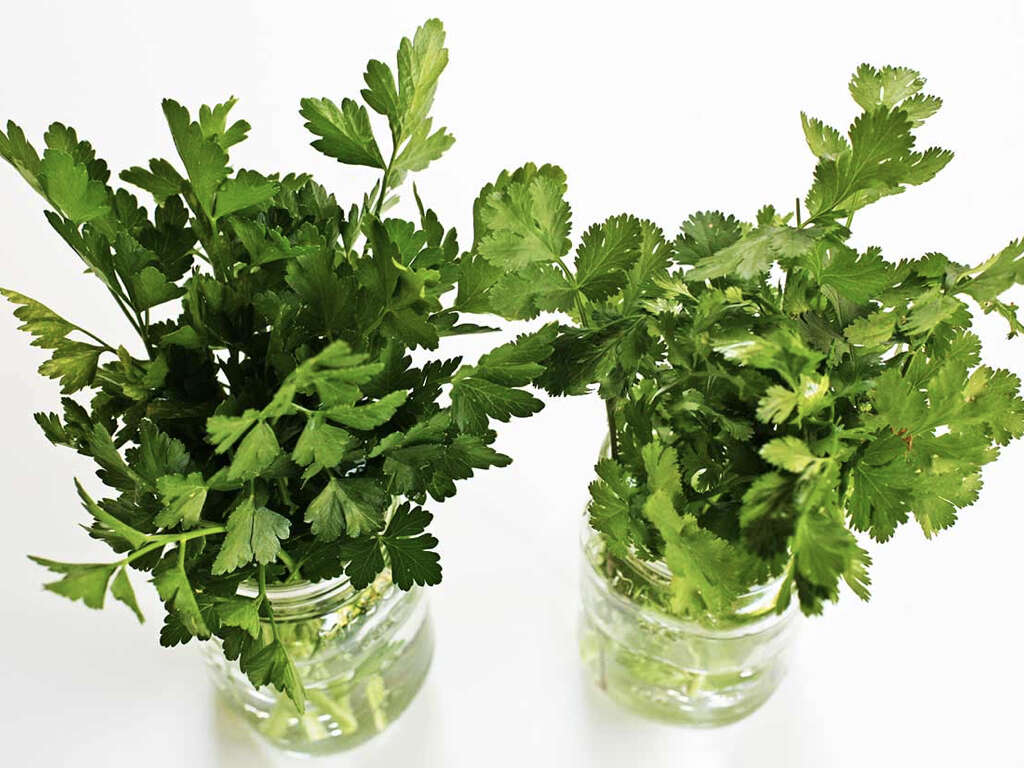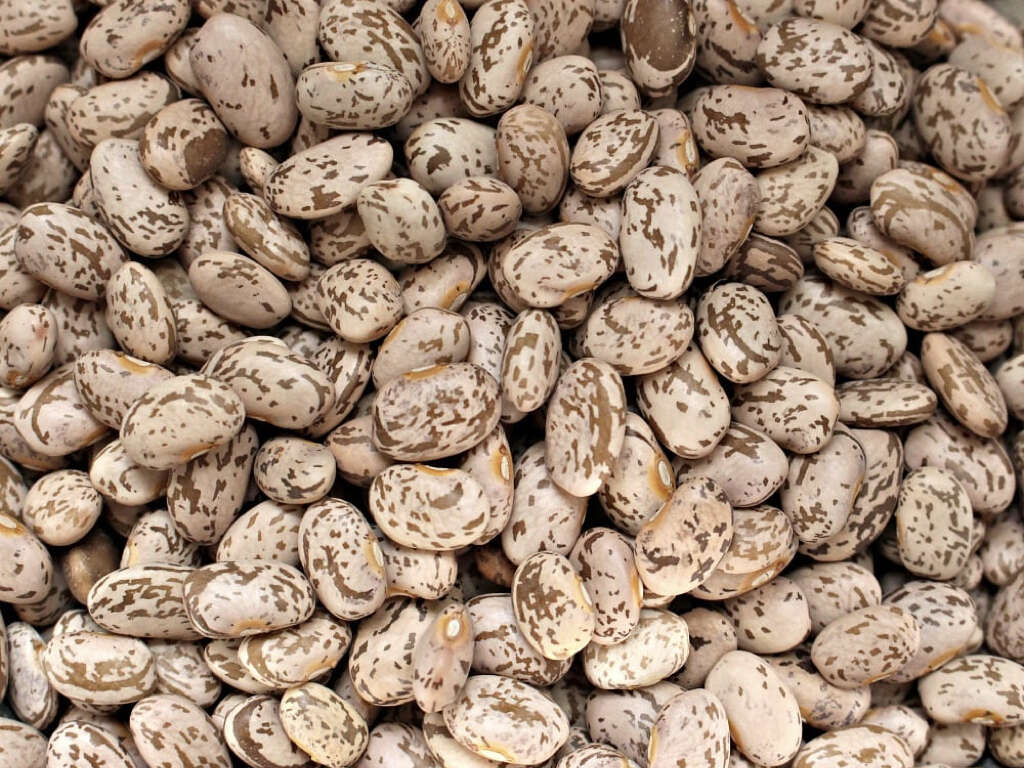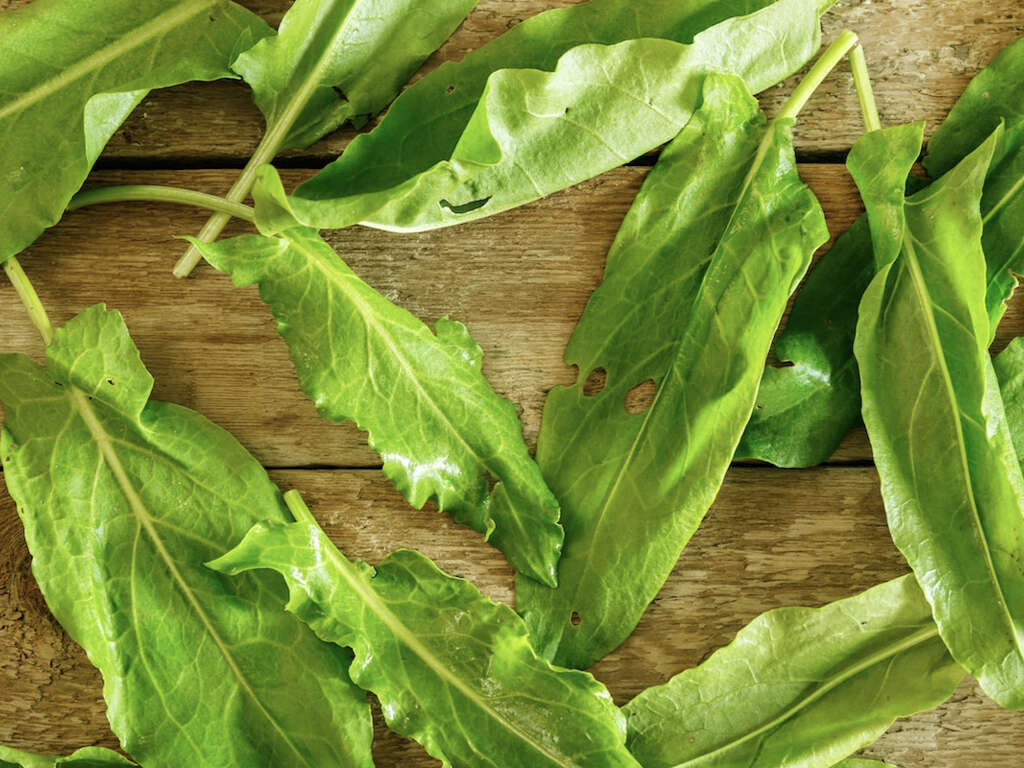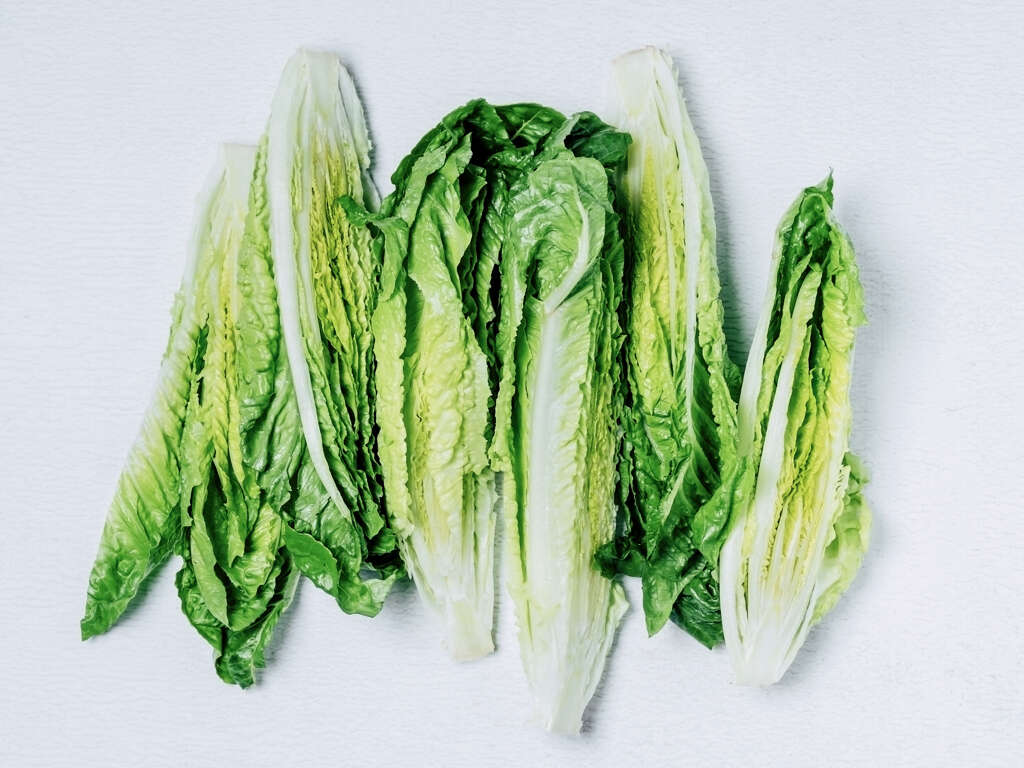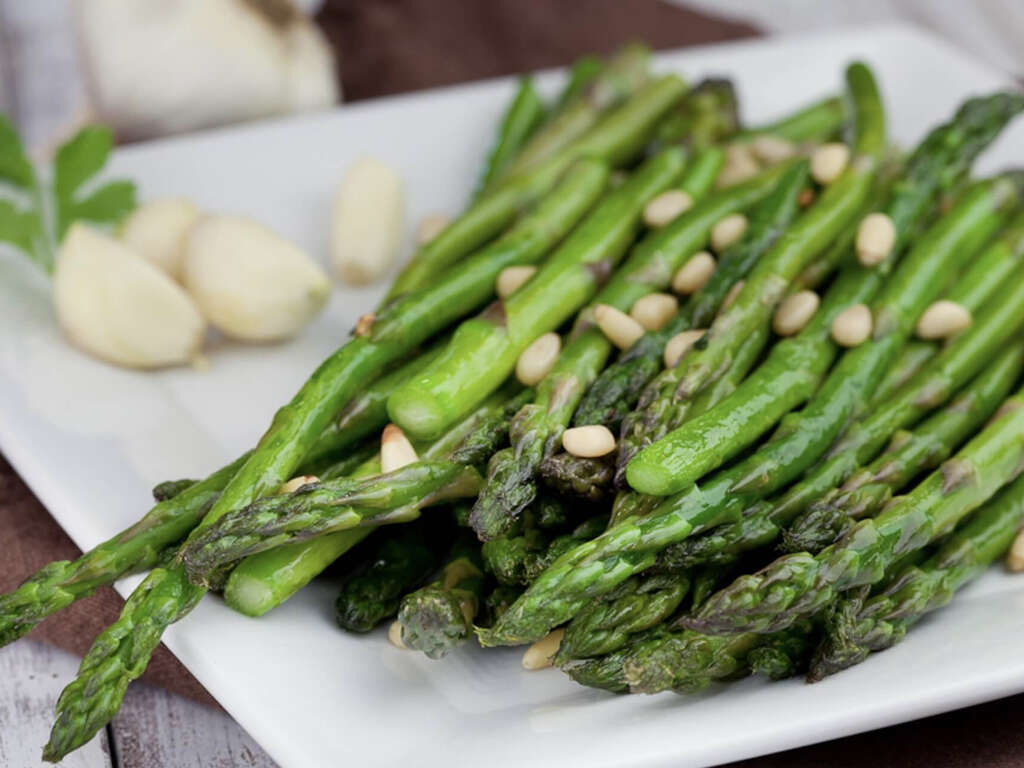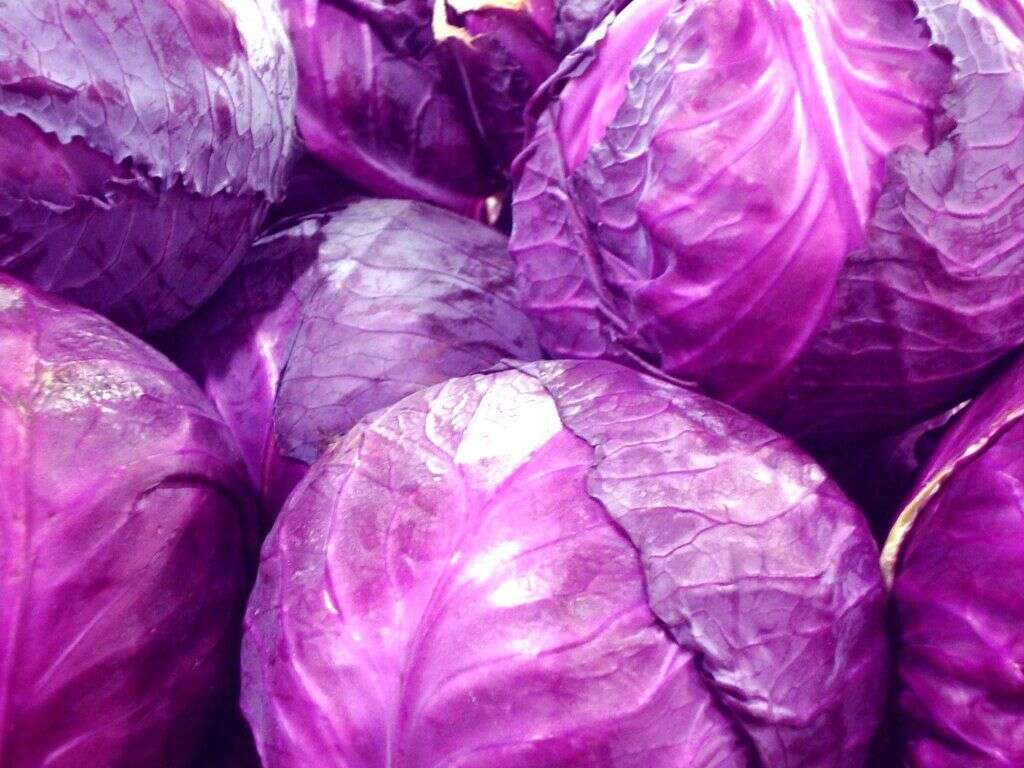10 Benefits Of Peas
Peas are a cheap, starchy, vegetable that can be found in any grocery store, which is often described as tasteless. It is filled with numerous health benefits due to its high mineral and vitamin content.
Peas are a part of the legume family. Legumes are a class of vegetables that includes beans, peas, lentils, garbanzo beans, and nuts. Legumes though considered starchy, a term people run from, are low in fat, low in calories, and rich in protein.
Peas have been around for 5000 years and is believed they originated in Egypt or China. Often the vegetable is typically eaten in a mixed dish such as with rice, a soup, or a salad.
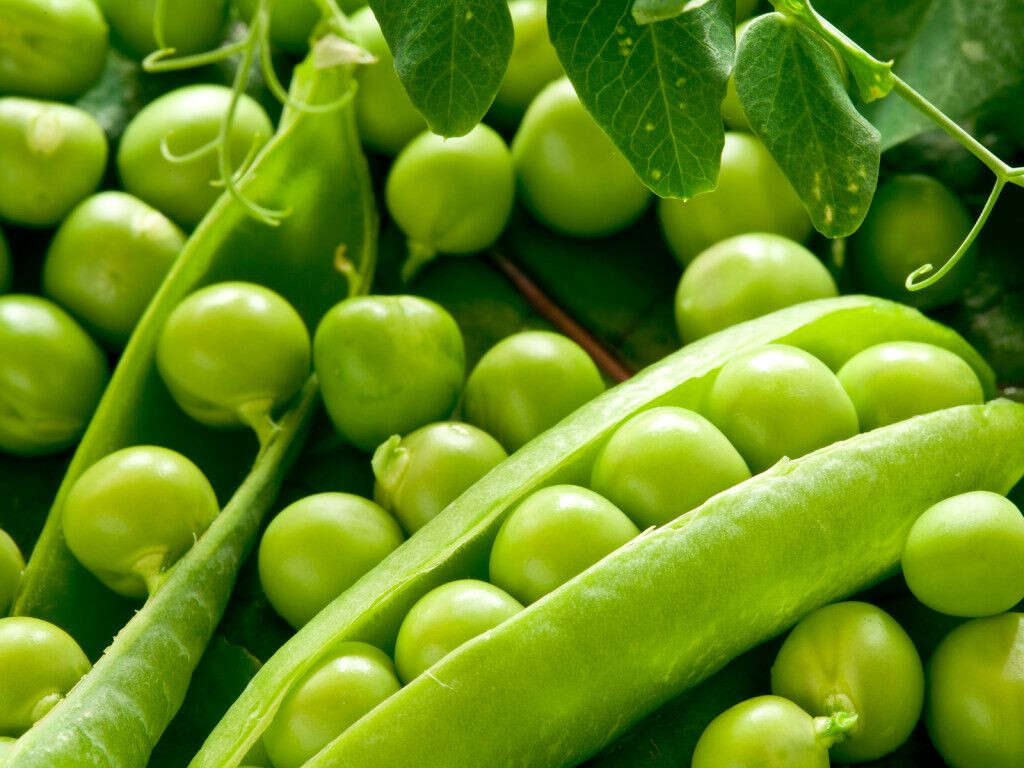
Peas Benefit #1: High in Protein
When it comes to protein, vegetables are not usually the first thing that may come to one’s mind. However, peas, especially in comparison to their vegetable counterparts are filled with protein. One cup of peas has 8 grams of protein. In contrast, one cup of broccoli yields roughly 2 grams of protein. This is ¼ the amount of peas! They are an especially great source of protein for vegetarians or vegans who struggle with incorporating protein into their diets.
In addition, protein alongside fiber slows digestion. With its high protein and fiber content, peas increase satiety levels (1). Thus, decreasing those urges to snack in-between meals. This is especially important for weight management.

Peas Benefit #2: Good Source of Iron
Iron deficiency anemia is the most common cause of anemia. Iron is essential to ensure healthy red blood cells and to ensure hemoglobin can transfer oxygen throughout the body. Though very common, iron deficient anemia can usually be combatted by increasing iron in the diet.
There are two forms of iron. Heme and non-heme iron. Heme iron is easier for the body to absorb and only exists in meat sources such as eggs, chicken, and beef. Non-heme iron is found in plant based foods. Peas, a vegetable, contain the non-heme version of iron. Though not as easy for the body to absorb, peas are still a high source of plant iron that can be easily and cheaply added to one’s diet. This is especially beneficial for vegans and vegetarians.

Peas Benefit #3: Combats Heart Disease
Heart disease is incredibly common in the United States and is one of the number one causes of preventable deaths. Though several factors such as genetics and socioeconomic status can contribute to the disease, diet is a factor that strongly comes into play. Peas, which in addition to being low calorie and high in protein, are also rich in potassium and magnesium. Both minerals are crucial to not only blood pressure but overall heart health.
One study revealed that taking potassium supplements for 4 weeks reduced blood pressure in normal and hypertensive participants. Similarly, a study on magnesium mirrored these results. Increased magnesium in diet decreased blood pressure. This can also be done when eating high potassium, high mineral peas.
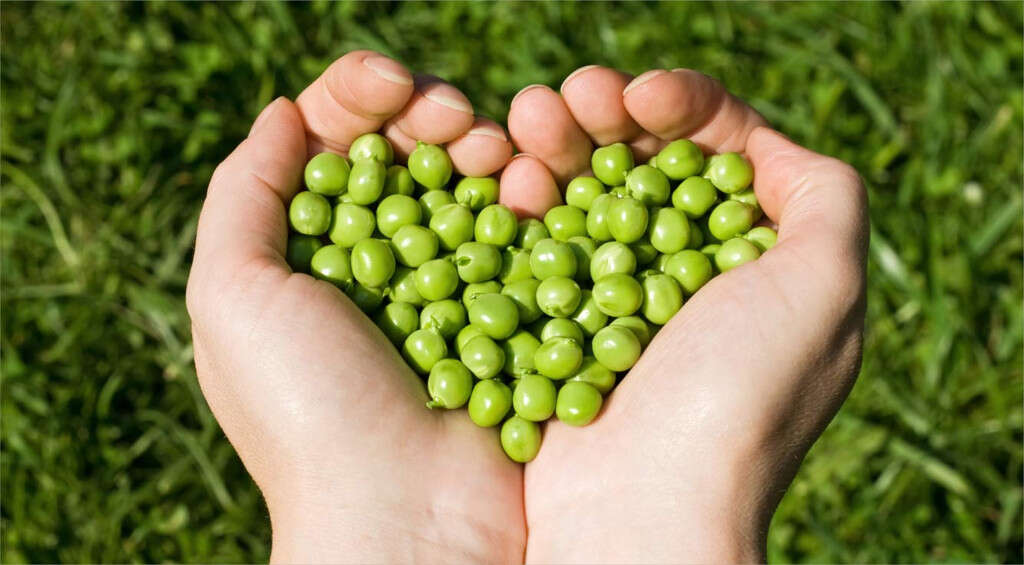
Peas Benefit #4: Reduces the Risk of Cancer
Peas, beans, and lentils all make up the legume family which is a group of beans that have been consumed by humans for centuries. This family of beans contains numerous vitamins and minerals such as zinc, folate, iron, and magnesium which, in the proper amount, are all beneficiary to human health.
In addition to these vitamins and minerals, peas are also filled with saponins and tannins. These are phytochemicals that combat the growth of cancer cells. One study revealed daily consumption of peas can reduce the risk of stomach cancer. Peas are also rich in Vitamin K, which has anticancer capabilities.
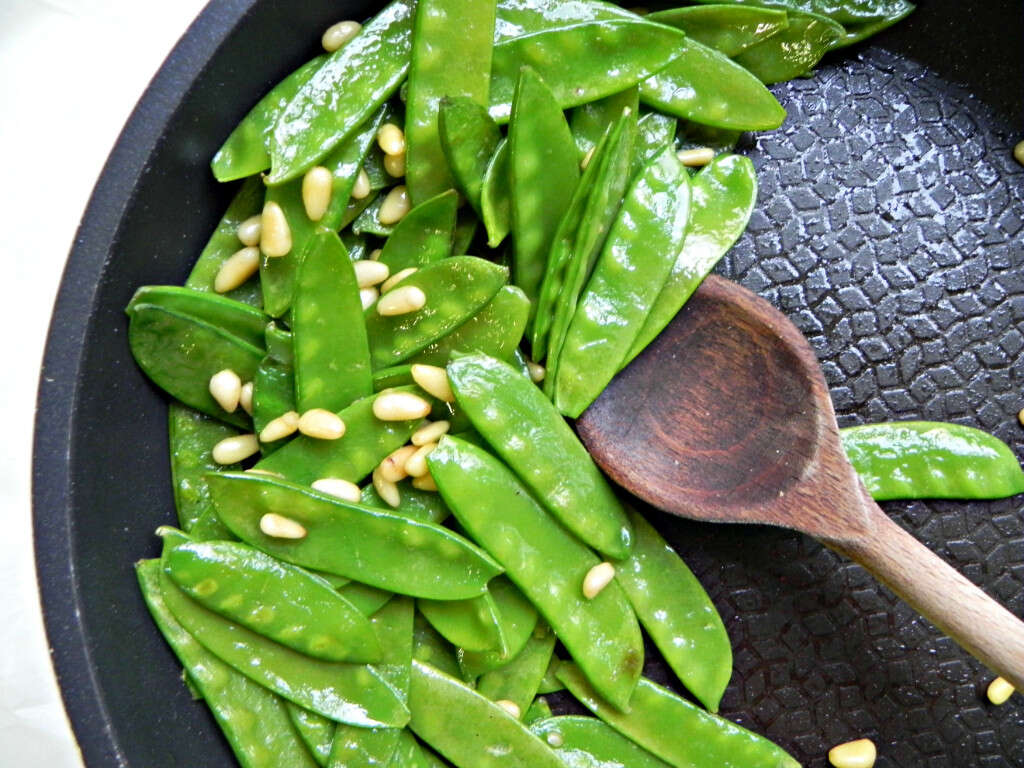
Peas Benefit #5: Controls Blood Sugar
For diabetic or pre-diabetic individuals, it is essential to focus on foods that have a low glycemic index. Low glycemic index foods are foods that will not cause a rapid spike in blood sugar after consumption.
Peas are great because they are a low glycemic food, which means they are slowly digested, absorbed, and metabolised and cause a lower and slower rise in blood glucose. In addition, peas are filled with fiber, which is good for diabetics. Foods high in fiber, such as peas, will slow the absorption of sugar, thus once again avoiding that high spike in blood sugar.

Peas Benefit #6: Better Digestion
Most people do not get enough fiber in their diet. A lower fiber diet can cause constipation, decreased satiety, and even high cholesterol levels. There are two types of fiber: Insoluble and soluble fiber. Though different, both are important to our diet (8).
Soluble fiber pulls water and turns to gel during digestion, this slows the digestion process. This form is important as it attracts cholesterol and releases it from the body. Insoluble fiber, in which peas are high, helps with the movement of poop. This fiber helps with constipation and irregular stools.

Peas Benefit #7: Great for the Environment
Foods, such as meat, eggs, cheese, and dairy have relatively high carbon water footprints. Carbon footprint measures the amount of greenhouse gases produced to produce the item. Similarly, water footprint is the amount of water needed to produce a product. This measurement includes the moment the animal is at the farm all the way until it reaches our plates.
As the population continues to increase, the amount of mouths to feed increases as well. With an increasing population and more reliance on meat and dairy, the environment suffers. Peas as well as many vegetables are low in both carbon and water footprints. In addition, peas improve the soil they are grown in making them great for the earth.
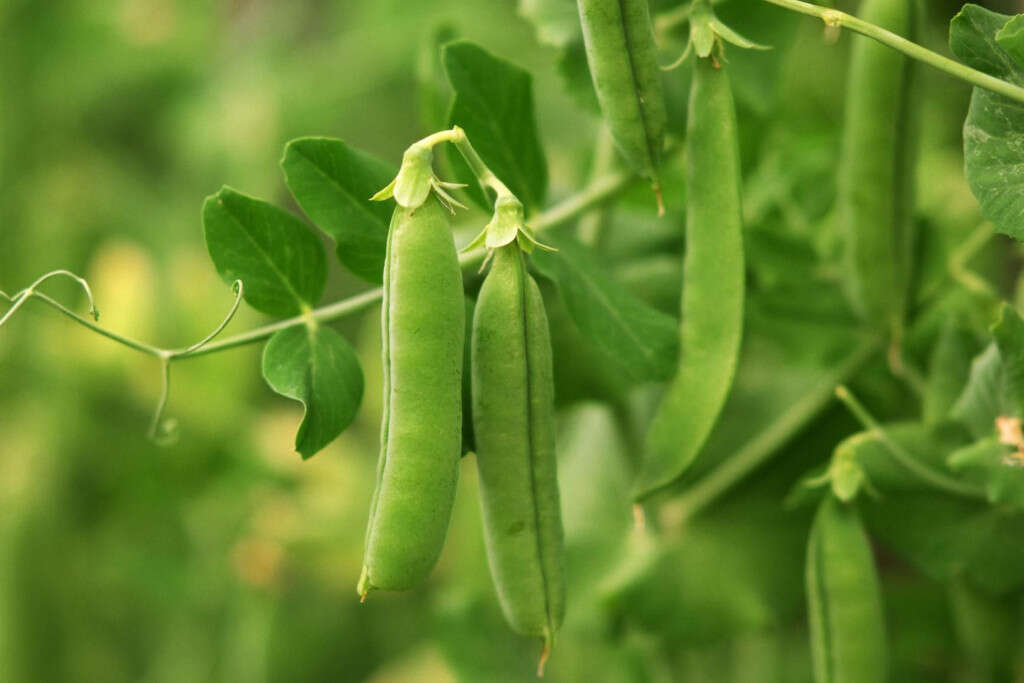
Peas Benefit #8: Good for Eye Health
Peas are filled with the antioxidant lutein. Lutein helps protect and maintain the quality of the eyes by filtering high energy wavelengths. The human body does not make lutein on its own, thus it is crucial to obtain the anti-oxidant through a diet.
Lutein is primarily found in vegetables. Peas are especially high in lutein, with 3.6 milligrams per cup. Though there is not a daily allowance recommendation, numerous studies indicate 10 milligrams per day is very beneficial to one’s health. 3.6 grams per cup would make up 30% of that amount.

Peas Benefit #9: Rich in Vitamins
Peas have a very positive nutrition profile. The vegetable is high in numerous vitamins such as vitamin K, vitamin C, and B vitamins.
Vitamin K is important for blood clotting, bone metabolism, and regulating blood calcium levels. One cup of the low-calorie food, contains nearly half of the recommended daily allowance of the vitamin. 30% of the daily allowance of vitamin C is fulfilled with just ½ a cup of peas. Vitamin C is essential for collagen formation and healthy skin. One cup of cooked peas will provide ¼ of the dietary allowance of Niacin and Riboflavin, vitamins essential for aiding numerous metabolic processes.
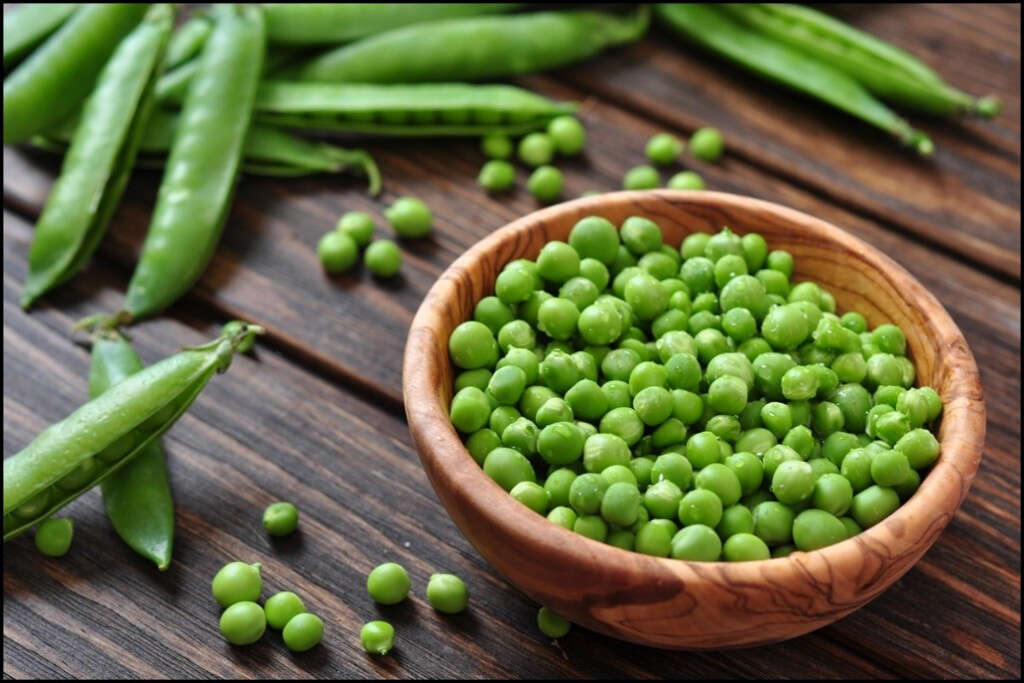
Peas Benefit #10: High Leucine Content
Leucine is a branched amino acid that is used in the biosynthesis of proteins. Lecine is essential to human health because it helps stimulate muscle production. Research has shown that 2.5 grams of leucine is needed to stimulate muscle protein synthesis.
Peas have a higher leucine content than eggs and beef. Peas are so rich in leucine and protein in general, some protein powder companies are researching ways to include the vegetable in their formulas!




